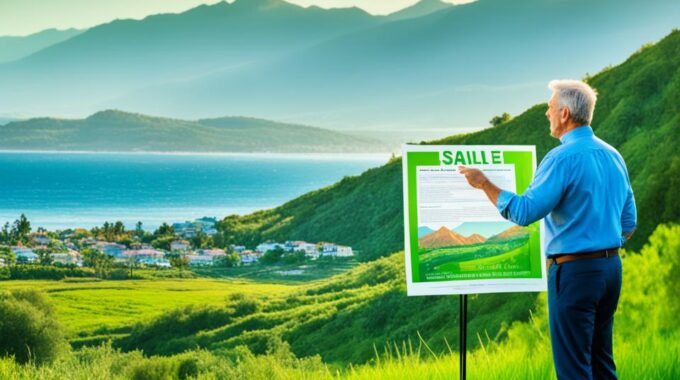Essential Factors to Consider When Buying Land in Costa Rica
Costa Rica, renowned for its stunning biodiversity and breathtaking landscapes, presents a unique opportunity for those considering real estate investments. Whether you’re drawn to the Pacific beaches, the lush rainforests, or the serene mountain valleys, buying land in Costa Rica offers a gateway to both personal fulfillment and financial growth. This comprehensive guide will navigate you through the essential aspects of purchasing land in this Central American paradise.
Benefits of Buying Land in Costa Rica
Buy land in Costa Rica offers multifaceted advantages that extend beyond financial returns. The country’s stable economy, coupled with its commitment to environmental conservation, makes it an attractive option for international buyers seeking a slice of tropical heaven. The pristine beaches along the Pacific Coast and the rich biodiversity of its rainforests beckon investors looking to connect with nature while securing a promising investment.
Potential for Investment
Costa Rica’s real estate market has shown resilience and growth over the years, with properties often appreciating in value. Whether you’re considering a beachfront villa or an eco-lodge nestled in the jungle, the potential for rental income and capital gains remains high.
Natural Beauty and Biodiversity
From the volcanic peaks of the Central Valley to the white-sand beaches of Guanacaste, Costa Rica’s natural landscapes are as diverse as they are captivating. Owning land here means waking up to the sounds of howler monkeys and enjoying sunsets over the Pacific Ocean—a lifestyle coveted by many.
Favorable Climate
Costa Rica boasts a tropical climate characterized by year-round warmth and abundant sunshine. Whether you prefer the balmy temperatures of the coast or the cooler mountain air, Costa Rica offers diverse microclimates to suit every preference.
Legal Considerations
Before diving into the real estate market, it’s crucial to understand Costa Rica’s property ownership laws and regulations. While foreigners enjoy the same property rights as locals, certain restrictions and legal nuances apply.
Property Ownership Laws
Costa Rican law allows foreigners to own titled property outright, providing a secure framework for real estate transactions. It’s advisable to work with a reputable lawyer who specializes in real estate to navigate the legal intricacies.
Restrictions for Foreigners
While foreigners can own land in Costa Rica, there are restrictions on properties located near borders and coastal areas. Understanding these limitations ensures compliance and prevents legal complications down the road.
Popular Regions to Consider
Costa Rica’s diverse geography offers a plethora of options for prospective land buyers. Whether you seek the surf-ready shores of the Pacific or the quieter Caribbean coast, each region presents its own unique charm and investment potential.
Pacific Coast
Known for its pristine beaches and vibrant coastal towns, the Pacific Coast attracts surfers, sun-seekers, and investors alike. Areas like Guanacaste and Puntarenas offer a blend of luxury resorts and secluded getaways, catering to a range of lifestyles.
Caribbean Coast
The Caribbean side of Costa Rica exudes a more laid-back vibe, with its Afro-Caribbean culture and untouched natural beauty. From the vibrant town of Puerto Viejo to the serene beaches of Tortuguero, this region appeals to eco-conscious buyers and nature enthusiasts.
Central Valley
Nestled between mountain ranges and volcanoes, the Central Valley boasts a cooler climate and fertile landscapes. Cities like San José and Heredia offer urban conveniences amidst a backdrop of coffee plantations and cloud forests, making it ideal for those seeking a balance between nature and city life.
Types of Land Available
Costa Rica’s varied terrain accommodates a wide range of property types, each offering distinct advantages depending on your preferences and investment goals.
Beachfront Properties
Owning a beachfront property grants unparalleled access to Costa Rica’s pristine coastlines and azure waters. Whether for personal use or rental income, beachfront real estate remains a coveted choice among international buyers.
Rainforest Estates
For those captivated by biodiversity and seclusion, rainforest estates offer a chance to immerse oneself in Costa Rica’s lush greenery and wildlife. These properties often appeal to eco-tourism ventures and nature lovers seeking a retreat off the beaten path.
Agricultural Land
Costa Rica’s fertile soil and favorable climate support various agricultural endeavors, from organic farming to sustainable forestry. Investing in agricultural land not only aligns with eco-friendly practices but also offers opportunities for income diversification.
Factors to Consider Before Buying
While the allure of Costa Rican land is undeniable, several practical considerations can influence your purchasing decision and long-term satisfaction.
Accessibility
Consider proximity to airports, major roads, and amenities when evaluating land options. Accessibility can impact both personal enjoyment and the marketability of your investment property.
Infrastructure
Access to utilities such as water, electricity, and internet connectivity varies by region. Understanding the infrastructure in place—or planned—for your chosen property ensures a smooth transition and comfortable living conditions.
Development Potential
Assess zoning laws and local development plans to gauge the future growth potential of your chosen area. Whether for personal development or resale value, understanding the trajectory of local infrastructure and tourism initiatives is crucial.
Finding and Evaluating Land
Navigating Costa Rica’s real estate market requires diligence and local expertise to ensure a sound investment decision.
Local Real Estate Agents
Engage reputable real estate agents who possess local market knowledge and a track record of integrity. They can guide you through property listings, negotiate on your behalf, and provide insights into neighborhood dynamics.
Due Diligence Process
Conduct thorough due diligence, including land surveys, title searches, and environmental assessments. This process verifies property boundaries, confirms legal ownership, and identifies any potential liabilities associated with the land.
Land Survey and Title Verification
Obtain an updated land survey and verify the property’s title with the National Registry. This step prevents boundary disputes and legal complications that may arise from incomplete or inaccurate property documentation.
Costs Involved in Buying Land
Beyond the purchase price, budgeting for additional costs ensures a transparent and financially prudent transaction.
Purchase Price
Property prices in Costa Rica vary widely based on location, size, and amenities. Research recent sales data and enlist the expertise of a local appraiser to determine fair market value.
Legal Fees and Taxes
Factor in legal fees, notary costs, and property transfer taxes associated with buying land in Costa Rica. These expenses are typically a percentage of the property’s declared value and vary by region.
Maintenance Costs
Anticipate ongoing expenses such as property taxes, utilities, and maintenance fees. Whether you plan to develop the land immediately or hold it for future appreciation, understanding these costs is essential for financial planning.
Financing Options
While many buyers purchase land in Costa Rica with cash, financing options are available for qualified applicants.
Local Banks
Costa Rican banks offer mortgage loans to foreign investors, subject to certain eligibility criteria. Explore loan terms, interest rates, and repayment schedules to determine the feasibility of financing your land purchase.
International Financing
Some international lenders specialize in financing real estate investments abroad. Compare financing options, including terms and currency exchange considerations, to secure the most favorable arrangement for your investment strategy.
Steps to Buying Land
Navigating the land acquisition process in Costa Rica involves several sequential steps to ensure a seamless transaction.
Making an Offer
Once you’ve identified a suitable property, present a formal offer through your real estate agent or legal representative. Include contingencies such as financing approval and satisfactory property inspections to protect your interests.
Negotiation Tips
Negotiate in good faith while considering local market conditions and comparable property sales. Remain flexible on terms such as closing dates and repairs to reach a mutually beneficial agreement with the seller.
Closing the Deal
Finalize the purchase agreement with a qualified attorney and complete all necessary legal and financial transactions. Obtain updated property documentation, including a new title deed reflecting your ownership rights.
Environmental Impact
Responsible land ownership in Costa Rica involves preserving its natural resources and minimizing ecological footprint.
Conservation Efforts
Support local conservation initiatives and sustainable development practices to safeguard Costa Rica’s biodiversity and natural beauty. Consider eco-friendly construction methods and renewable energy sources when developing your property.











